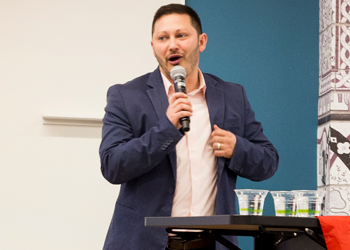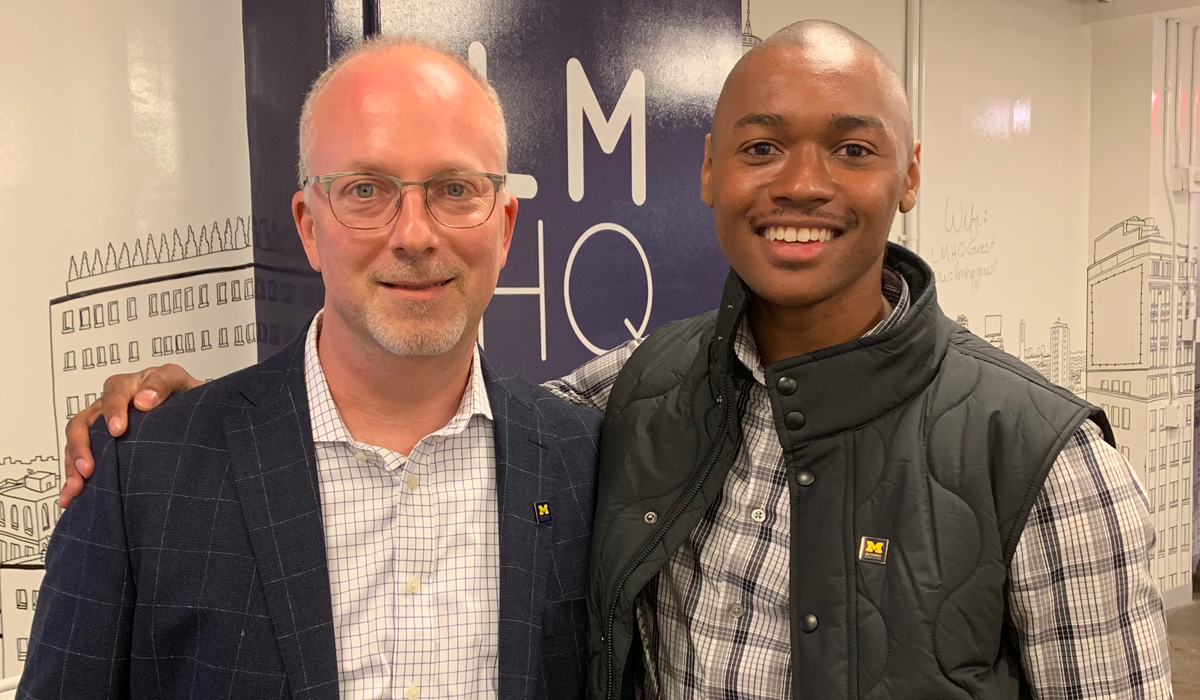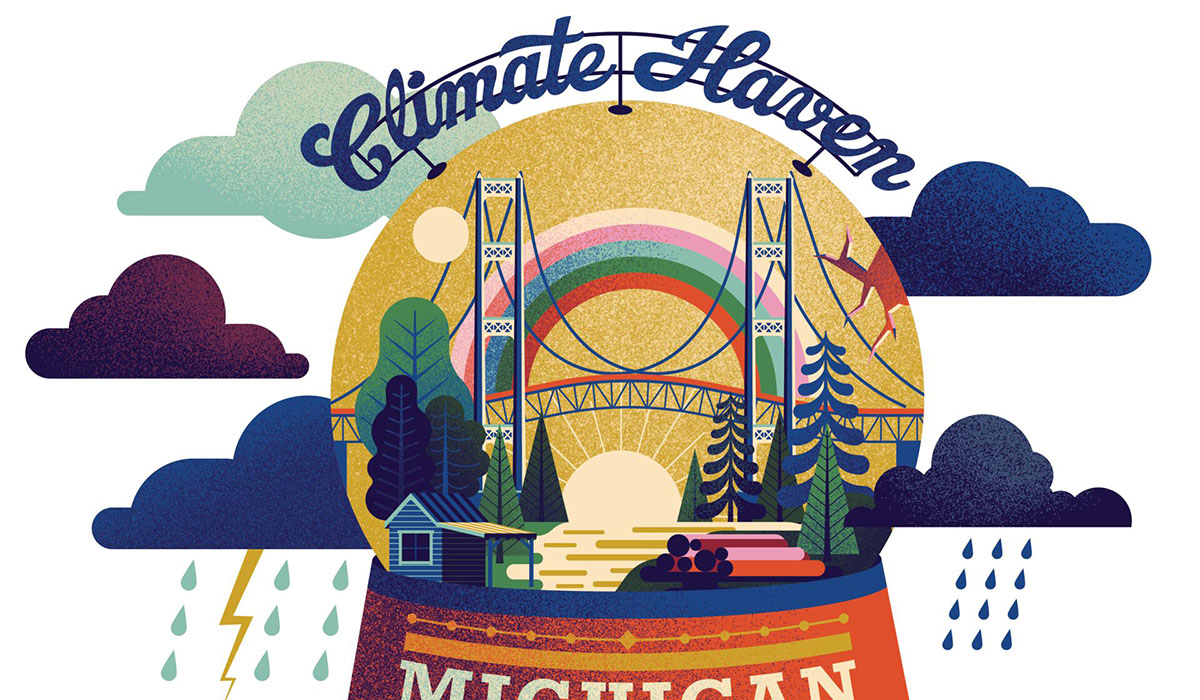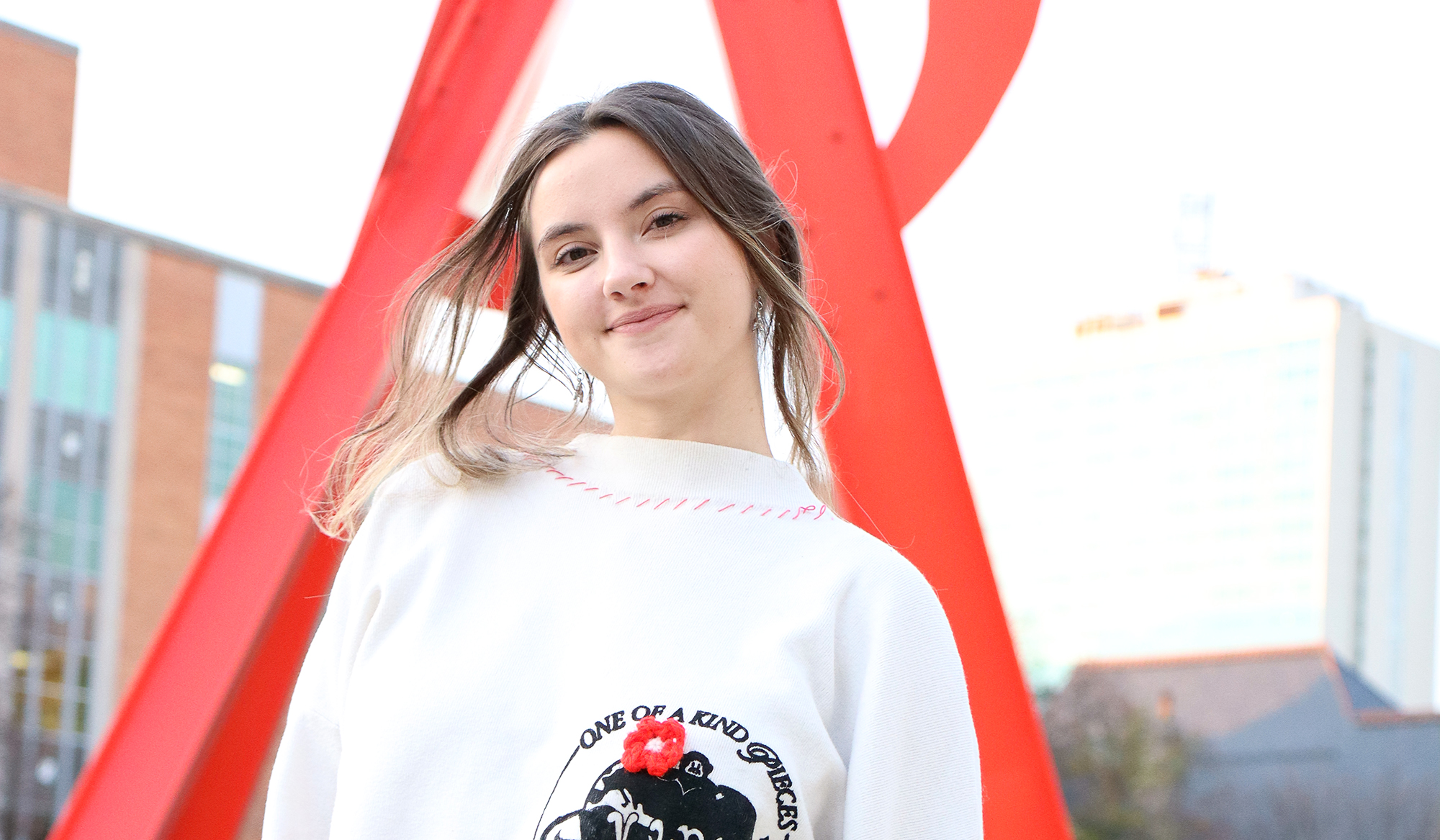Victors are natural volunteers. Through the new Alumni Volunteer platform, you can easily find opportunities that fit your schedule, skills, and interests — both virtual and in person — throughout the entire University and on all three campuses.
Two alumni share their experiences and thoughts about the value of volunteering as well as the benefits of this new platform. Aaquil Rowe, ’16, is the chair of U-M LGBTQ Alumni, co-chair of programming for the U-M Club of New York, and a New York ambassador for U-M Black Alumni (UMBA). Will Sherry, MA’07, is the director of U-M’s Spectrum Center, which provides education, outreach, and advocacy for the lesbian, gay, bisexual, transgender, queer, and allied community. The Spectrum Center, founded by Jim Toy, MSW’81, is just one of many campus partners, affiliate groups, and regional clubs helping to launch the Alumni Association’s new platform. For additional information on how you can volunteer, click here.
What impact have you seen from alumni volunteering?
Will: I see our students getting incredible value from the advice and skills of our alumni volunteers. The mentorship and panel programs, as well as social events with alumni, create intentional spaces for our students to interact with alumni. One memorable panel was of graduates who work in the engineering field and identify as a gender minority: women, trans, nonbinary. Seeing how young alumni navigate these jobs and something like personal pronouns in the workplace, is very impactful for the students. This kind of experiential sharing in the queer community helps others navigate challenges.
Aaquil: Meeting so many aspiring volunteers, I have also been able to help alumni. I work at a startup tech company that has had rapid growth. I met a fellow 2016 U-M grad at a U-M happy hour event and referred him to my company. He has now been there for a year and a half and we are looking to bring on additional U-M grads.
What excites you both most about the new Alumni Volunteer platform?
Aaquil: Sometimes organizations try to create volunteer opportunities just so they exist. The approach with the Alumni Volunteer platform is different. We want to know the community’s needs and match those to volunteers. This platform allows the Spectrum Center and U-M LGBTQ to constantly field people who would be open to doing a speaking engagement. When we have transitions for prominent regional club positions, we can use the Alumni Volunteer platform to help find that avid person. It also allows us to track alumni volunteer hours and foster recognition. It is hard to scale volunteer work, especially when working with affiliate groups that have a larger scope. Having a digital infrastructure like the Alumni Volunteer platform allows more cohesive processes, collaboration, and touchpoints to give back to one another in the community.
Will: There is so much opportunity around alumni engagement that we were not yet living into. This fall is our 50th anniversary. With the Alumni Volunteer platform, we now have the infrastructure and a lens for engaging people digitally. So just the expansion of who we can engage with on this platform is exciting on many levels.
How did each of you become involved in volunteering with U-M?
Aaquil: I am from New York and began attending every event put on by the U-M Club of New York the moment I moved back after graduation. It was easy, low-risk networking to get in a room with other Michigan people. I then helped organize a happy hour and a panel about how to get into tech sales and was asked to join the club’s board. As a Black gay man, I became involved with U-

M LGBTQ and UMBA when I learned about the affiliate groups through the Alumni Association. Coming from a prominent regional club, I knew I could contribute lots of ideas about how to bring both communities forward digitally and connect us nationwide.
Will: While in grad school at U-M’s School of Social Work, I started working around gender and sexuality and held internships mostly with nonprofit LGBTQ organizations in Detroit and the metro area. My dad is a social worker, and I was raised with the value that it is part of your responsibility to see how you can help meet needs outside of yourself. I spent my undergraduate years volunteering at a youth center and participating in alternative spring breaks. I have now been at the Spectrum Center for almost 12 years and have had the opportunity to work with volunteers and alumni in all different kinds of capacities.
How has volunteering, and working with volunteers, benefited you personally?
Aaquil: I have had amazing access to more senior alumni. It has deepened my understanding and passion for the community and my ability to elevate the voices, particularly of underrepresented groups. Paying it forward has been an amazing training ground in my career. Volunteering and holding leadership positions made me realize I want to go to business school. I have now applied to a number of schools, including the Ross School of Business.
Will: I have had the deep mentorship of many alumni at the Spectrum Center. I have benefited from Aaquil’s U-M LGBTQ role but also from an alum who is an executive coach. He did an organizational development assessment for us, looking at our structure, reporting lines, and communications. But the most important mentorship has come from Jim Toy. I am one of those rare directors leading a place where your founder is still available. He is still a passionate volunteer and very giving.
How to Volunteer
Lend a hand as a Victor — wherever you are, however you can — with the new Alumni Volunteer platform, populated with in-person and virtual opportunities hosted by U-M academic and non-academic units as well as alumni clubs and affiliate groups. Opportunities include everything from helping the William L. Clements Library improve its social media presence to working a shift at the Maize & Blue Cupboard distributing free food to those in need. The Alumni Association is also committed to providing a diverse and inclusive volunteer experience that honors each individuals’ strengths, abilities, and contributions.
How it works:
Once you have logged into the Alumni Volunteer platform, the portal allows you to search opportunities based on a variety of criteria and keywords, including which city, state, or country you reside in if you would like to volunteer in person. Numerous virtual opportunities are available, particularly now due to the pandemic, from mentoring students to judging student research projects. You can also add dates when you are available or match your schedule with volunteering opportunities available in a calendar view.
By creating a profile, you can share with campus partners what types of volunteering you are interested in pursuing and whether you are willing to travel in person when it is safe to do so. It also allows you to self-report your volunteer hours so the Alumni Association can recognize your contribution.





